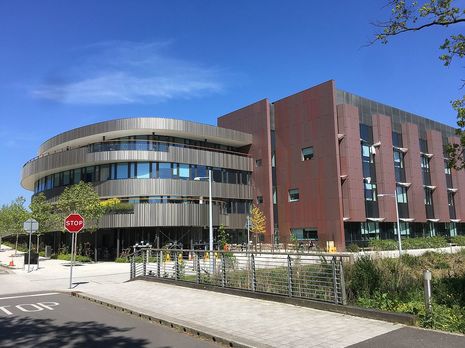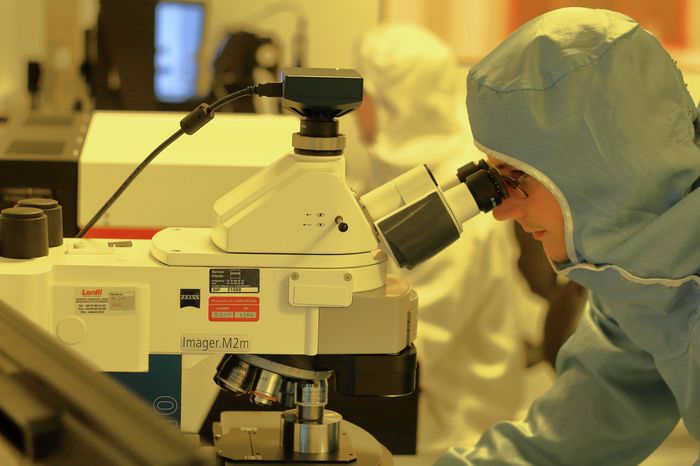Cambridge researchers assist Covid-19 response around the world
Varsity spoke to the Cambridge academics refocusing their work on the pandemic.

In his annual Address to the University, Vice Chancellor Stephen Toope emphasised his “tremendous pride in the University’s accomplishments” during the coronavirus pandemic.
Varsity spoke to some of the researchers who “jumped into action” when Covid-19 struck, reorienting their work towards fighting the spread of the virus.
Professor Lisa Hall CBE, who works at the Department of Chemical Engineering and Biotechnology (CEB), is leading an international group of scientists developing a coronavirus test for deployment in sub-Saharan Africa.
“Every one of the 55 African countries faces a different set of challenges but common to all of them are severe issues accessing COVID-19 tests,” she told Varsity.
“Cost is an obvious challenge when you look at local health funding and people’s average income,” she continued, pointing out that $25 per test is not affordable “in a country like Ghana, where 30% of the population live on less than $3.20 per day.”
Even if there is funding, the reliance of African nations on imports means they are “competing with other countries that do have manufacturers and are starting to impose export controls…to ensure they can meet their own needs”.
“Once there are tests available, they need to be deployed in over-stretched and under-resourced health systems where many people live miles from hospitals and medical laboratories.”
Further to logistical problems, infectious diseases are a major cause of mortality “even in normal times”, explained Hall. Patients of other widespread diseases, such as malaria, tuberculosis, and HIV, have very similar symptoms to Covid-19. The need to diagnose the cause of these symptoms exacerbates the existing shortage of tests.
To address the crisis faced by sub-Saharan Africa, Hall’s group is modifying standard coronavirus tests to make them “quicker, ideally taking less than one hour, and deployable outside of a laboratory context”.
Hall and her colleagues began using a technology called LAMP for malaria tests before the pandemic began. LAMP relies on a polymerase, an enzyme which copies viral nucleic acids.
They have since adapted the test for Covid-19, but the cost of the enzymes required remains prohibitive. Much of Hall’s work, therefore, focuses on “producing these enzymes for nucleic acid diagnostics by growing them in bacteria and then purifying them by binding them to silica, a cheap chemical that can even be obtained from beach sand”.
The scientists hope to set up manufacture in Ghana “in the coming months”.
Cambridge’s biochemists are not the only ones assisting the response to the pandemic in Africa.
Dr Lucia Corsini, a research assistant at the Institute for Manufacturing (IfM), was one of a team from the University of Cambridge, the Bahir Dar Institute of Technology, the University of Malawi Polytechnic, and the Centre for Global Equality who set up local production of personal protective equipment (PPE) in Malawi and Ethiopia.
Corsini explained to Varsity: “As the coronavirus pandemic started to unfold in the first half of 2020, health workers in Malawi and Ethiopia were facing extreme shortages of PPE.”
“At a time when it was impossible to import face masks and face shields, our project started using digital fabrication (3D printing and laser cutting) to support the local production of PPE in Malawi and Ethiopia.”
Over 2,000 face shields have already been donated to hospitals in Malawi, and over 3,000 have been sold to local businesses.
Corsini hopes that digital manufacturing could help the humanitarian sector in the developing world, which “mainly relies on importing solutions from developed countries” at present.
“In Malawi, the team are already exploring how the new digital fabrication facility that has been set up could be converted into a design and production hub for tackling other pressing healthcare challenges in the post-coronavirus era,” she says.
In CEB, Hall is also hopeful that her work will “generate greater autonomy for countries in Africa to deal with future pandemics”.
“There is scope to revolutionise accessibility of diagnostics but a whole ecosystem needs to be built to support that and we are just at the start.”
Closer to home, Dr Sarah Foley, a research associate at Cambridge’s Centre for Family Research (CFR) has been studying the strain Covid-19 has put on family ties.
“With the charity Stand Alone and Dr Lucy Blake at Edge Hill university, Dr Susan Imrie and I at the CFR conducted an online survey to look at family estrangement and the Covid-19 crisis,” Foley told Varsity.
The results of the survey, which received 801 responses, showed that “55% of respondents felt more alone and less connected” as a result of the pandemic. Additionally 16% of respondents “had experienced an increase in contact” with estranged family members.
Foley and her colleagues are now involved in an international study “examining the experiences of families with children aged 3-7 years old”.
Many other academics in the University have received attention for their work on Covid-19.
The Cambridge Institute of Therapeutic Immunology and Infectious Disease (CITIID) “pivoted almost the entirety of its research towards understanding and treating Covid-19”, according to the Vice Chancellor.
CITIID leads the Cambridge Fighting COVID initiative. One of its senior members, Professor Ravi Gupta, has recently been named in Time Magazine’s list of 100 Most Influential People of the Year.
Gupta was recognised for his role in bringing about the second known cure of a patient with HIV, but has recently applied his expertise to understanding the evolution of coronavirus in patients.
At the Department of Applied Mathematics and Theoretical Physics (DAMTP), Professor Paul Linden has discovered that a common type of ventilation system, which mixes the air in a room to maintain a constant temperature, increases the risk of exposure to coronavirus compared to stratified systems, where air is allowed to form layers.
“Despite the various mechanisms generating disturbances indoors, it is clear that in many cases stratification ‘wins’,” writes Linden and his co-author Dr Rajesh Bhagat, also at DAMTP.
But the wisest course of action remains unchanged, according to Linden: “Keep windows open and wear a mask appears to be the best advice,” he said in a University press release.
With this “best advice” still in force, Cambridge staff and students are beginning a new term of research. As he concluded his Address, the Vice Chancellor seemed optimistic about their achievements in the coming months.
“I look to the coming year with some trepidation, I admit – but also a huge sense of possibility.”
“I trust that all of us, together, will continue to show creativity, resilience and empathy to make this academic year a success – no matter what the world throws at us.”
 News / Fitz students face ‘massive invasion of privacy’ over messy rooms23 April 2024
News / Fitz students face ‘massive invasion of privacy’ over messy rooms23 April 2024 News / Cambridge University disables comments following Passover post backlash 24 April 2024
News / Cambridge University disables comments following Passover post backlash 24 April 2024 Comment / Gown vs town? Local investment plans must remember Cambridge is not just a university24 April 2024
Comment / Gown vs town? Local investment plans must remember Cambridge is not just a university24 April 2024 News / Students organise Cambridge’s first female and non-binary club night25 April 2024
News / Students organise Cambridge’s first female and non-binary club night25 April 2024 Arts / ‘Walking around Robinson is automatically humbling’: college architecture and the psyche24 April 2024
Arts / ‘Walking around Robinson is automatically humbling’: college architecture and the psyche24 April 2024






